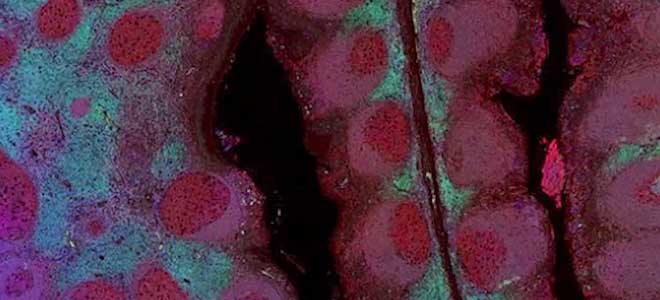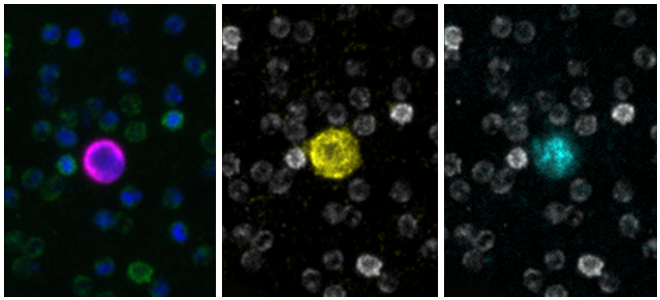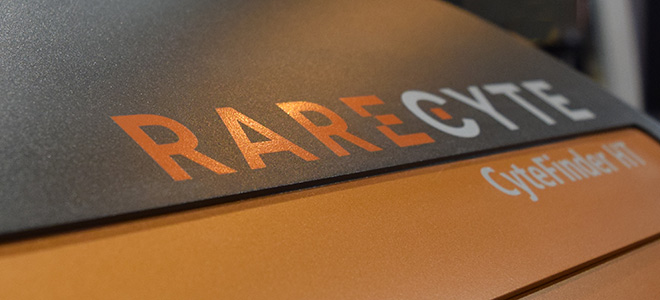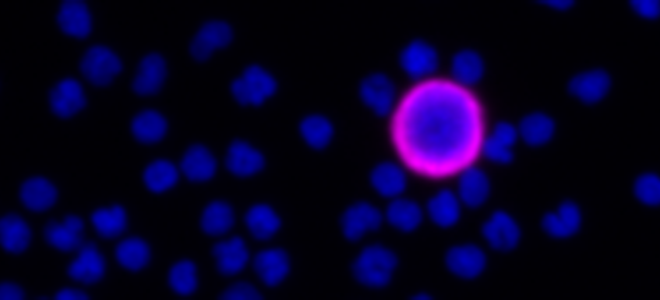Developer Kits – 405/488
Download Specification Sheets
Download Test Menu Catalog
Breast Cancer Markers: RarePlex HER2/ER CTC Panel Kit
Overview of Breast Cancer Markers
The RarePlex® HER2/ER CTC Panel Kit (0901-VB) enables detection of human epidermal growth factor receptor 2 (HER2) and estrogen receptor (ER) expression by circulating tumor cells. HER2 and ER are important prognostic and therapeutic biomarkers in breast cancer. ER-signaling is the major driver of breast cancer proliferation and HER2 positive tumors are associated with aggressive disease. Ovarian, endometrial, gastric, and lung cancers are also known to have biomarker positivity for HER2 or HER2 and ER.
The HER2/ER Panel Kit includes all reagents needed to detect HER2, ER, CK/EpCAM, CD45, and nuclei on AccuCyte slides. Kit validation requirements were set to clinical standards and showed a high level of accuracy, repeatability, and inter-run precision. The HER2/ER Panel Kit is suitable for use in large, multi-center clinical trials where circulating tumor cell enumeration and phenotypic characterization data are required.
Benefits of Rarecyte Panel Kits for Breast Cancer Tumor Markers
RareCyte’s deployable platform for circulating tumor cell analysis:
- A clinical research laboratory can process blood to slides to result in their own lab
- Platform produces accurate and highly reproducible results
- Convenient pause points in workflow enable shipping between sites
- Flexibility in sample processing – A site can process AccuCyte slides and/or perform staining and analysis
- Leverage worldwide network of CROs
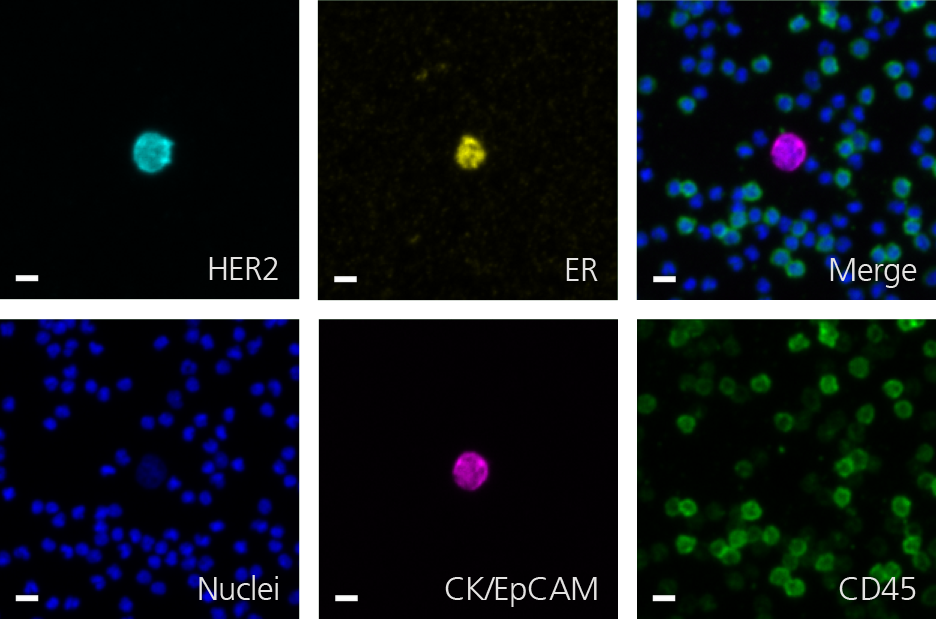
Scale bar represents 10μm.
Additional resources for the RarePlex HER2/ER Panel Kit
Download the specification sheet →What are the most common Breast Cancer Tumor Markers for Diagnosis and Research?
Breast Cancer research uses tumor markers, or serum markers produced by tumor cells, to identify the presence of breast cancer. Although most of these biomarkers can also be made by the normal cells, they are produced at much higher levels in cancerous conditions. Breast cancer markers can be used to evaluate the patient’s response to treatment or to detect the presence of metastasis or recurrence. The CA 27-29, CA 15-3, CA27.29, carcinoembryonic antigen, tissue polypeptide specific antigen, p53, cathepsin D, cyclin E, nestin and HER-2 are tumor markers that are often expressed in people with breast cancer. Three of these tumor markers — cancer antigen 15-3 (CA 15-3), cancer antigen 27.29 (CA 27.29), and carcinoembryonic antigen (CEA) — have been used to help monitor metastatic breast cancer specifically.
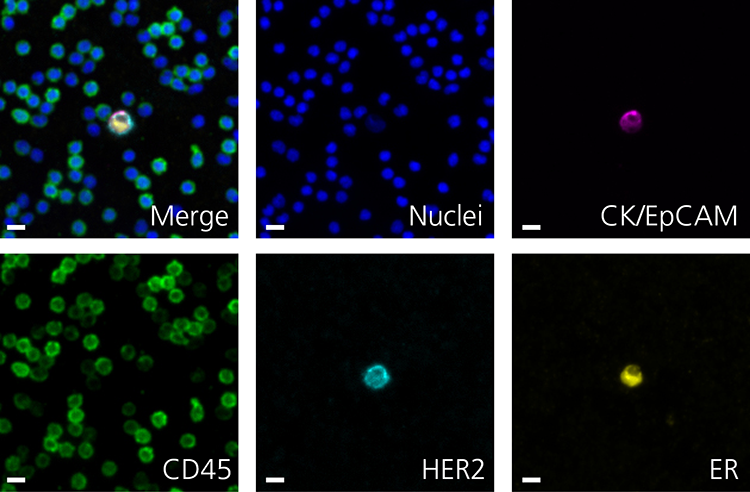
Scale bar represents 10μm.
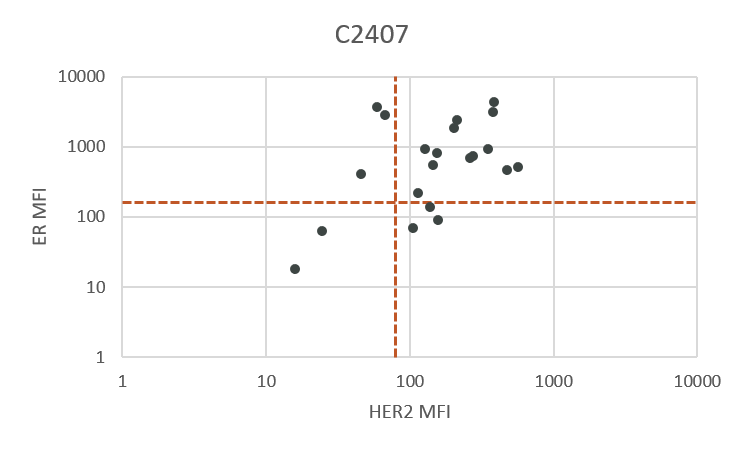
RarePlex® Assays: Design and Analytical Validation for Tumor Marker Testing
Presented by Dr. Tad George, Sr. VP of Biology R&D
RarePlex Assays are sensitive, specific, and reproducible assays for CTC detection and biomarker expression. Gain insight into the principles RareCyte applies to its assay design and validation process in this 11 minute video.


